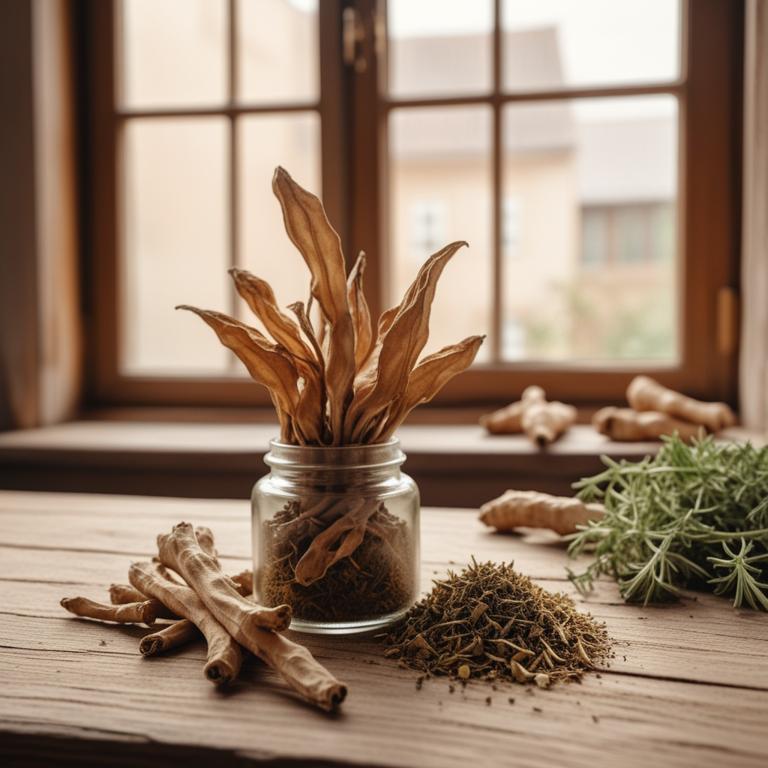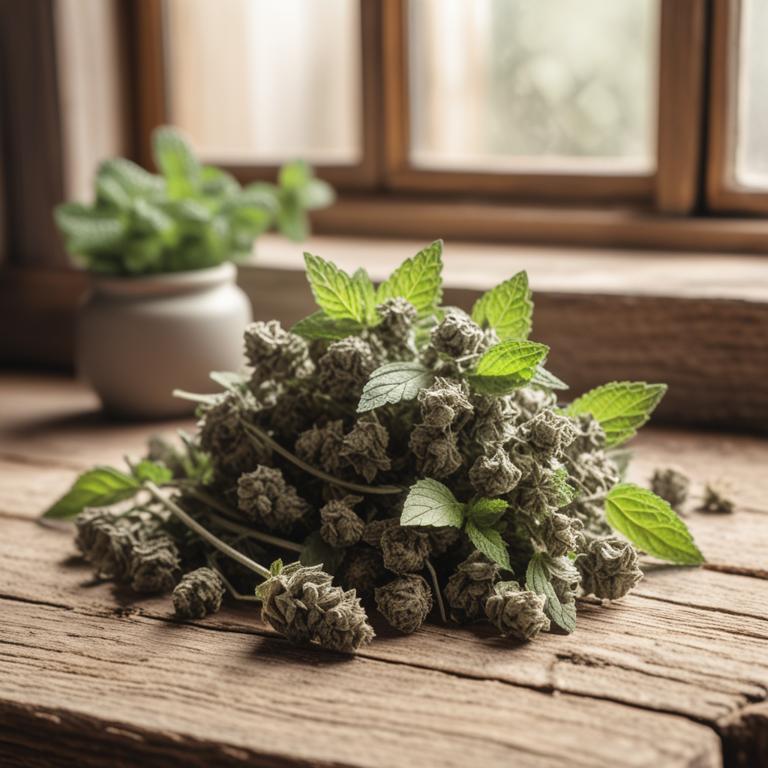Updated: Dec 1, 2024
Dizziness: Causes, Symptoms, and Natural Relief with Medicinal Herbs and Preparations
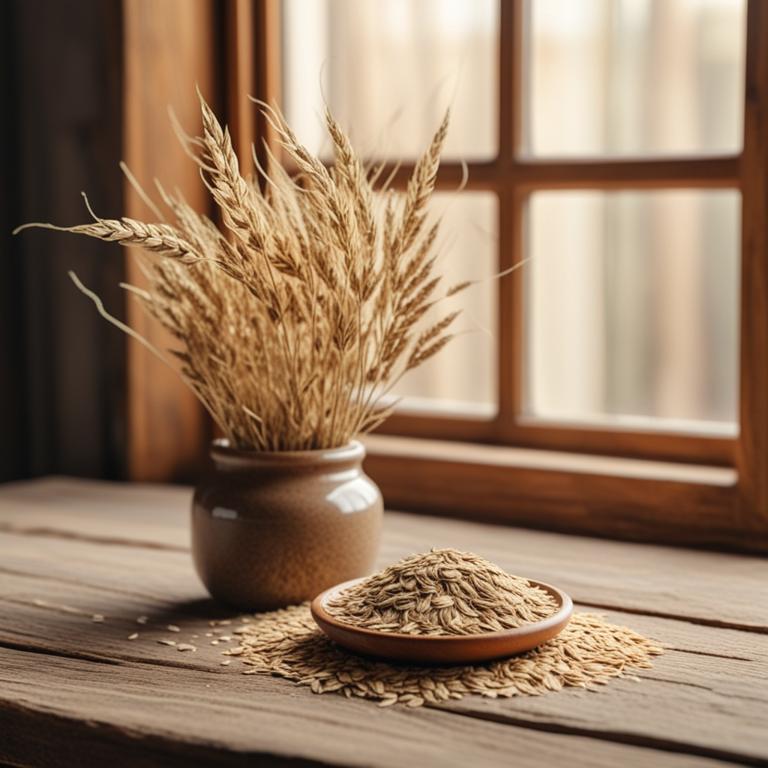
Dizziness is a feeling of spinning or being unsteady, which can make everyday tasks difficult and affect your quality of life.
It can be caused by a variety of factors, including inner ear problems, low blood pressure, medications, and certain medical conditions such as vertigo and migraines. If you experience dizziness, it's essential to identify and address its underlying cause. Some herbal remedies have been found to help alleviate dizziness. Peppermint, with its calming and cooling effects, can help soothe the stomach and reduce nausea.
Ginger, known for its anti-inflammatory properties, can help stabilize the digestive system and alleviate dizziness. Valerian root, a natural sedative, can help calm the nervous system and promote relaxation. Herbal teas are a popular way to consume these remedies. Peppermint tea can be made by steeping peppermint leaves in hot water, while ginger tea can be prepared by boiling fresh ginger roots. Valerian root tea can be made by steeping dried valerian root in hot water.
These teas can be consumed as needed, and some people find that drinking them before bed helps improve sleep quality and reduces morning dizziness.
Table of Contents
What triggers feelings of dizziness?
The main causes of dizziness are quite varied and can be related to different parts of the body.
One of the main causes is Vertigo, which is a feeling of spinning or tilting, even when you're standing still. This condition can be caused by a problem with the inner ear, where tiny balance organs, called the vestibular system, help us sense movement and maintain balance. Benign Paroxysmal Positional Vertigo, or BPPV, is another common cause of dizziness. This condition occurs when tiny crystals in the inner ear become dislodged and cause the balance organs to send false signals to the brain. When you move your head or body in a certain way, these crystals can shift and trigger a spinning sensation. Inner Ear Infections, also known as labyrinthitis, can also cause dizziness.
When the inner ear becomes infected, it can lead to inflammation and damage to the balance organs, causing a spinning or tilting sensation. This type of infection is usually caused by a bacterial or viral infection that affects the inner ear. Low Blood Pressure is another common cause of dizziness. When the blood pressure drops, it can cause a lack of oxygen and nutrients to the brain, leading to a feeling of lightheadedness or dizziness. This can be caused by dehydration, standing for long periods, or certain medications. Anemia, or a low red blood cell count, can also cause dizziness. When the body doesn't have enough red blood cells to carry oxygen to the brain, it can lead to a lack of oxygen and nutrients, causing a feeling of dizziness or lightheadedness.
This can be caused by iron deficiency, vitamin deficiency, or certain medical conditions.
What benefits can herbs offer in the treatment of dizziness?
Using certain herbs can help alleviate dizziness in several ways.
For one, they can improve blood flow to the brain, which can reduce lightheadedness and vertigo. Some herbs also have a calming effect, which can help ease anxiety and stress that can contribute to dizziness.
Additionally, certain herbs have anti-inflammatory properties, which can help reduce swelling in the inner ear that can cause dizziness. These herbs can also help stabilize the body's balance and equilibrium, making it easier to walk, stand, or perform daily activities without feeling dizzy.
By regulating the body's natural balance and reducing symptoms of dizziness, these herbs can provide relief and improve daily life.
What are the most effective medicinal herbs for dizziness?

If you're experiencing dizziness, there are some herbs that might help.
Ginkgo biloba is often used because it improves blood flow to the brain, which can help prevent dizziness caused by poor circulation. Valeriana officinalis, also known as valerian root, is a natural sedative that can calm your nerves and reduce dizziness triggered by anxiety.
Zingiber officinale, or ginger, has anti-inflammatory properties that can help alleviate dizziness caused by motion sickness or digestive issues. Panax ginseng is believed to improve blood flow and reduce dizziness by increasing the production of red blood cells. Passiflora incarnata, also known as passionflower, is a natural sedative that can help reduce anxiety and dizziness by promoting relaxation.
These herbs work in different ways, but they all have the potential to help alleviate dizziness by addressing its underlying causes.
What are the most widely used herbal treatments for dizziness?

If you're experiencing dizziness, herbal preparations can be a great help.
Let's take a look at some of the most effective ones. Decoction is a method of making herbal medicine by boiling roots, bark, and other hard plant parts in water. This method is good for dizziness because it can help relax blood vessels and improve blood flow to the brain, which can help reduce dizziness. For example, decoctions of ginger and peppermint can be very soothing for the stomach and help calm the mind. Herbal tea is another great way to combat dizziness. Tea is made by steeping leaves, flowers, and other soft plant parts in hot water. Ginger tea, for instance, has anti-inflammatory properties that can help reduce nausea and vomiting, which are common causes of dizziness. Peppermint tea is also excellent, as it can help calm the mind and relax the muscles. Infusion is similar to tea, but it's made by steeping flowers, leaves, and other soft plant parts in cold water.
This method is good for dizziness because it can help relax the nervous system and promote a sense of calm. For example, infusions of chamomile and lavender can be very effective in reducing anxiety and promoting relaxation. Tincture is a concentrated liquid herbal medicine that can be taken sublingually (under the tongue) or added to food and drinks. Tinctures of ginger, peppermint, and ginkgo biloba can be very helpful in reducing dizziness and improving blood flow to the brain. They can also help reduce inflammation and promote a sense of calm. Salve is a topical herbal medicine that can be applied directly to the skin. Salves of peppermint, ginger, and eucalyptus can be very effective in reducing nausea and vomiting, which are common causes of dizziness. They can also help relax the muscles and promote a sense of calm. These herbal preparations can be very helpful in reducing dizziness and promoting overall well-being.
They can be used individually or in combination, depending on the specific needs of the person.
Additional Resources:
Are there any herbs that can exacerbate dizziness?
If you're experiencing dizziness, it's crucial to be careful with certain herbs that might make it worse.
Taxus baccata, also known as yew, contains a toxic compound that can cause rapid heartbeat, which may further lead to dizziness. Hyoscyamus niger, or henbane, contains a substance that affects the nervous system, which can cause dizziness, hallucinations, and even heart problems.
Aconitum napellus, or monk's hood, is a highly toxic herb that can cause dizziness, nausea, and vomiting, among other symptoms. Cinchona officinalis, or Peruvian bark, contains a substance that can cause dizziness and other side effects, especially when taken in large doses. Aristolochia clematitis, or birthwort, contains a toxic compound that can cause kidney problems and other issues, including dizziness.
If you have dizziness, it's best to avoid these herbs altogether, as they can make your condition worse.
FAQ
Are there any specific herbs that can prevent dizziness?
Ginger is sometimes used to help prevent dizziness.
It's thought to help with balance and digestion. Peppermint oil, which can be inhaled or taken as a supplement, may also be helpful.
Some people find that taking a small amount of lavender or valerian root before bedtime can improve their balance and reduce dizziness.
Is it safe to use herbal remedies for dizziness during pregnancy?
Using herbal remedies for dizziness during pregnancy can be a concern.
Some herbs like ginger and peppermint may help with nausea, but others, like pennyroyal and blue cohosh, can cause problems for the baby.
It's best to talk to your doctor before trying any herbal remedies.
Are there any herbs that can reduce the frequency of dizziness?
Ginger is sometimes used to help with dizziness.
Its active compounds may help stabilize the inner ear, where balance is controlled. Peppermint oil can also have a calming effect on the body, which may reduce dizziness.
These herbs are not a cure, but they may help make symptoms more manageable.
Related Articles
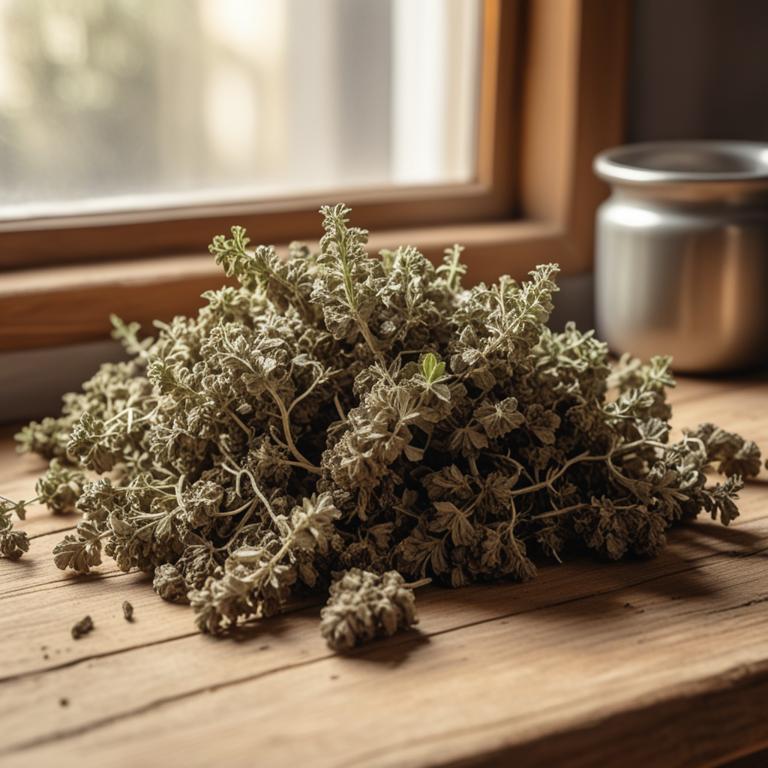
Sinus Headache Prevention and Treatment: Causes, Herbal Remedies, and More
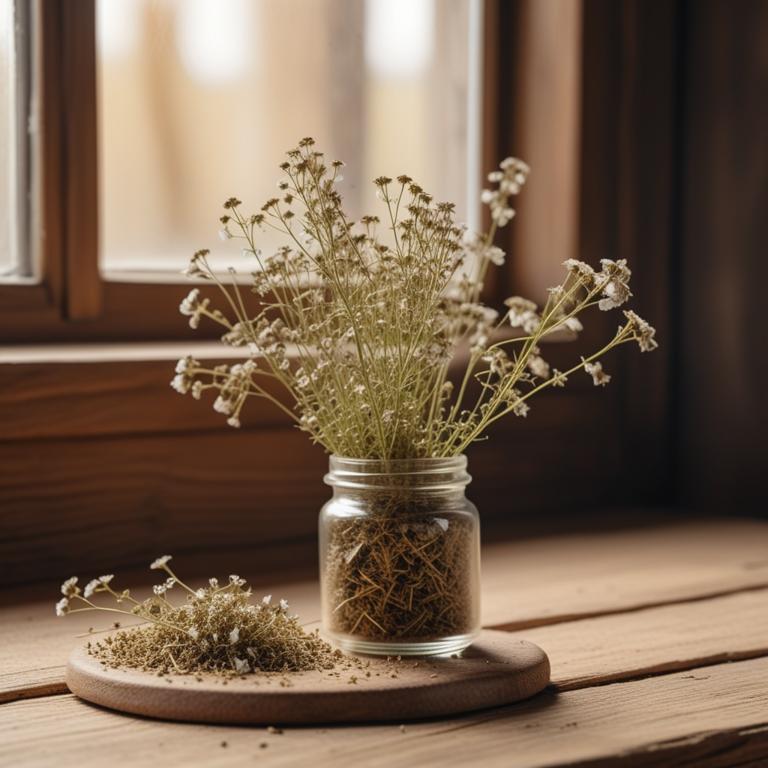
Sore Eyes Treatment with Medicinal Herbs and Herbal Preparations
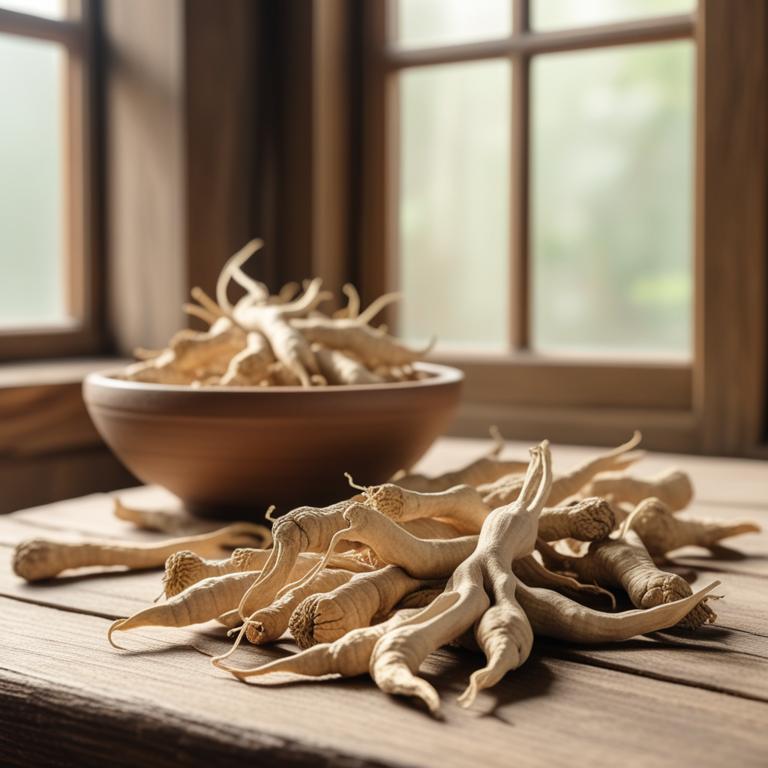
The Role of Medicinal Herbs in Neuritis Prevention and Treatment

Dry Mouth Remedies: Causes and Natural Treatments

Managing Difficult Speaking: Medicinal Herbs and Herbal Remedies
